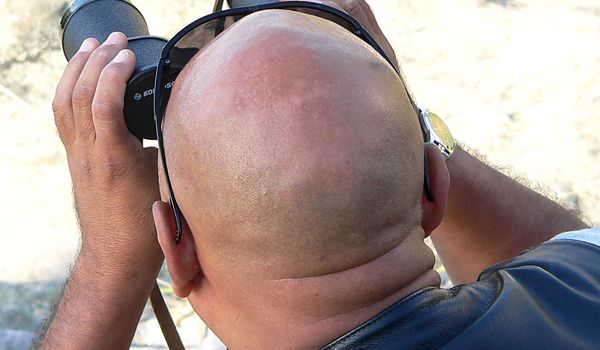Prostate Cancer Risk Linked to Baldness

Men who are losing their hair due to male pattern baldness may be at increased risk of dying from prostate cancer, a new study suggests.
Researchers analyzed information from more than 4,000 U.S. men ages 25 to 74, who were assessed by a dermatologist and categorized has having no balding, or minimal, moderate or severe balding.
Men with any degree of balding were 56 percent more likely to die from prostate cancer over a 21-year period, compared with men who were not losing their hair. What's more, those with moderate balding were 83 percent more likely to die from prostate cancer, compared to those with no balding.
The findings support the hypothesis that a shared biological process influences both balding and prostate cancer, the researchers said. One theory is that high levels of male hormones (such as testosterone) play a role in both conditions. Men with male pattern baldness have been found to have higher levels of male hormones, and these hormones also fuel the growth of prostate cancer cells.
However, it's too soon to make any recommendations about screening men for prostate cancer based on the findings, said study author Cindy Zhou, a postdoctoral fellow at the National Cancer Institute. "We still need future studies to replicate what we observed," Zhou said. [10 Do's and Don'ts to Reduce Your Risk of Cancer]
If the findings are confirmed, male pattern baldness might be used as one indicator of a man's risk of developing prostate cancer, which could help scientists determine which men should undergo prostate cancer screening, the researchers said. However, studies would first need to show that taking a man's baldness into account actually improves researchers' ability to predict the man's prostate cancer risk, above and beyond what can be predicted using current risk factors, Zhou said.
An earlier study found that men who start to bald in their 20s were at higher risk for prostate cancer than men who don't start to lose their hair until later, but the new study found a link between balding and fatal prostate cancer regardless of age.
Sign up for the Live Science daily newsletter now
Get the world’s most fascinating discoveries delivered straight to your inbox.
Interestingly, the new study did not find a link between severe balding and an increased risk of fatal prostate cancer. This could be because there were few men in the study with severe balding, which limited the ability of the study to detect a link, Zhou said.
The study was presented this week at the American Association for Cancer Research meeting in Philadelphia.
Follow Rachael Rettner @RachaelRettner. FollowLive Science @livescience, Facebook& Google+. Original article on Live Science.

Rachael is a Live Science contributor, and was a former channel editor and senior writer for Live Science between 2010 and 2022. She has a master's degree in journalism from New York University's Science, Health and Environmental Reporting Program. She also holds a B.S. in molecular biology and an M.S. in biology from the University of California, San Diego. Her work has appeared in Scienceline, The Washington Post and Scientific American.










